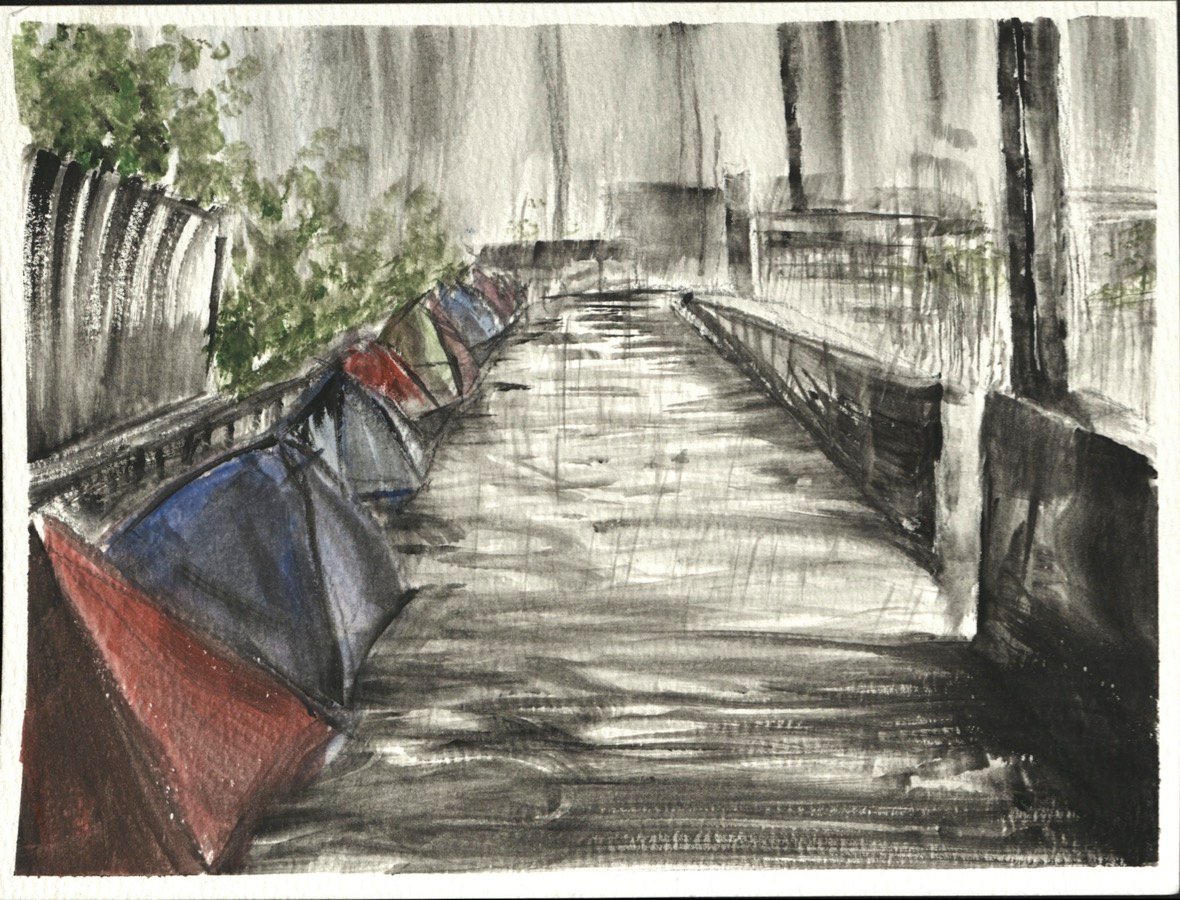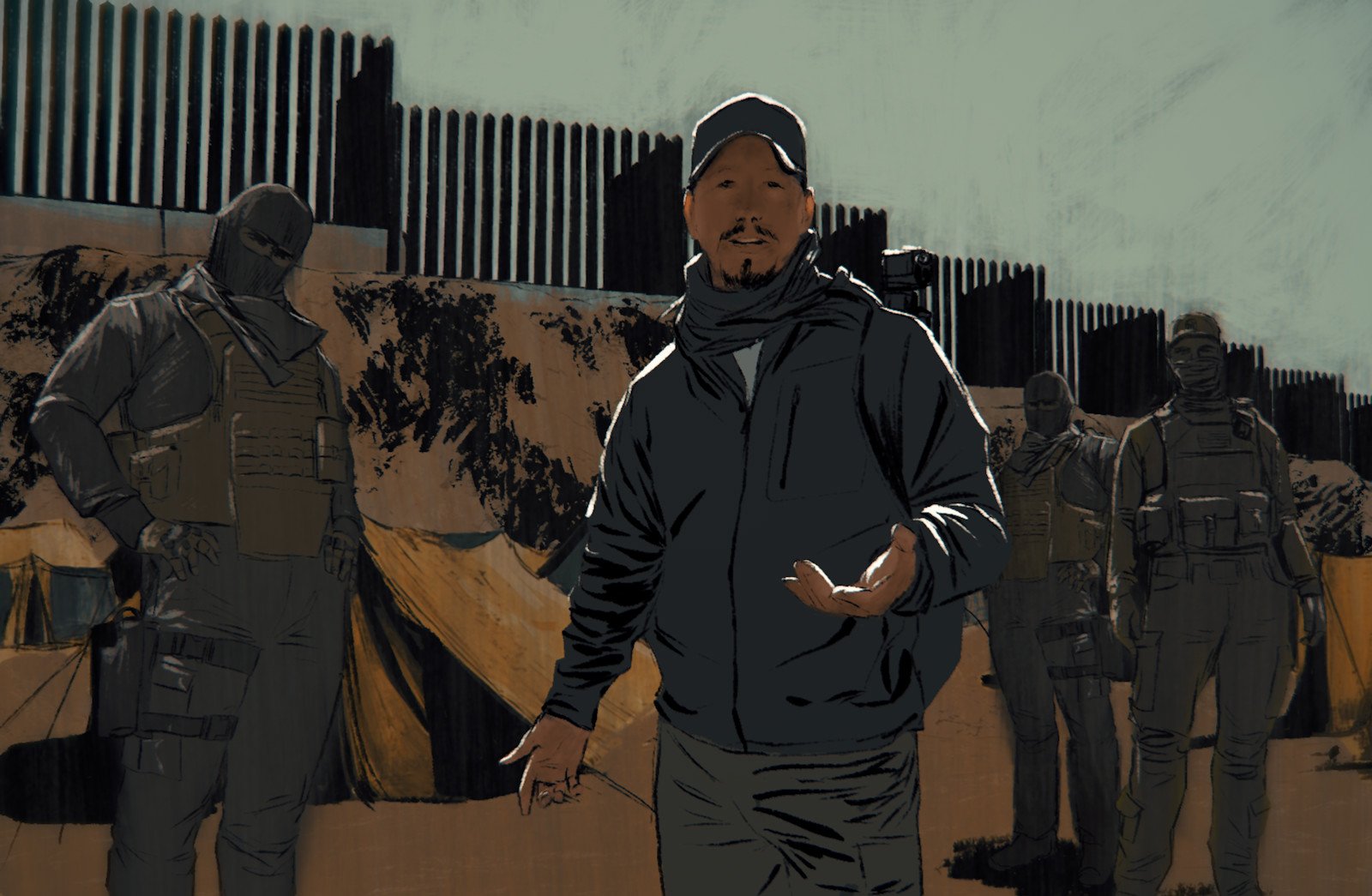Graduation Day
Last week, we announced the winners of our 2012 Short Story Contest. Today, we’re publishing the second of our four finalists. We’ll continue to publish stories every week for the next month. Read last week’s finalist.
Graduation Day
The farmer didn’t like leaving Riley, the hired man, to finish up the chores alone, even though it was time to get on in and get ready to go to town. He carefully lifted the new work boots out of the box from Sears and Roebuck, where he had saved them for three whole weeks, just for tonight. Tomorrow he’d wear those boots for chores for the first time; in a day or two they’d be “broke in” and he wouldn’t even think of them as new boots anymore.
But tonight, they were clean and new, to go with the pressed khaki pants he put on, and the starchy white shirt.
By the time he was dressed, his wife and two daughters were ready to squeeze themselves into the seat of the truck. After they were gone, Riley would roll a cigarette or two and stare at the sunset, and scratch the dog behind the ears, and finally go on into the little bunkhouse where he slept, while the farmer and his wife and his two daughters drove down the dirt road into town, fifteen miles away.
The younger of the two girls bounced deliberately, a little more than she needed to, every time the truck hit a little bump. She was fourteen, and had graduated from eighth grade just the week before, barely able to stand prim and serene for five minutes to receive her diploma from the county superintendent in the little white schoolhouse a mile down the road from where they lived.
“Can’t you sit still for just one minute?” her big sister asked, smoothing her dress.
The little sister frowned and counted fence posts for about a mile, then started slyly bouncing again, until she was bouncing ridiculously high, and all four of them were laughing out loud.
There was just enough light for the little sister to count the blue stars in three windows as they drove the four blocks it took to get from the edge of the little town to the schoolhouse.
“That makes one more than last week,” she said, “and five altogether, counting the two at our house.”
“You were so busy fooling around that you didn’t notice the new one at Handy’s house,” her mother scolded.
When they arrived, the farmer took his place among the other men, out where the cars were parked, and listened to the banker tell a few good stories about when he had graduated from high school, and laughed with the other men, although most of them had never gone to high school. They all turned and looked past the schoolyard toward the train station, just a few hundred feet away, and watched as a small passenger train, just three cars, pulled over on the siding. A minute later, a freight train pulled by, full speed, headed north.
“Supplies got to get through,” the banker said. Everybody nodded as if it were new and interesting information.
The farmer’s wife stood shyly by the schoolhouse steps, until she recognized another farm woman, and went and stood by her. The younger sister inspected the schoolhouse from the outside, since she knew she would be going to high school there the next fall, and the older sister, giving herself a minute to get over the embarrassment of spilling out of the truck like a country bumpkin, ran inside to find her cap and gown, and then came and stood with the other seniors. The black gowns made them feel more solemn than usual—and most of them knew they were headed overseas in a few months at most. But Harding Spradlin, who was already eighteen, and would be off within a week, was already cool as an old soldier, leaning back in his black robe and grinning at four of the eight girls in the class, who stood around him with sweet, admiring smiles. Harding’s younger brother Coolidge Spradlin, in slacks and a shirt, joined in the flirting; he would be at home for another year, to help with their father’s store and finish high school, and then he would be off, too.
It was already dark when Mrs. Randolph, the English teacher, announced that it was time for the seniors to line up and go inside. Miss Bundren, the music teacher, looked over from the piano for the signal from Mr. Randolph, the principal, that it was time to begin. The summer crickets were already beginning to stir, almost in rhythm with the Pomp and Circumstance March, and a few folks fanned themselves, in time to the music, while the seniors, seventeen serious young men and women, walked slowly in and stood in two rows at the front of the little auditorium.
Out on the railroad track, the porter walked through each of the train cars. He stopped and asked an old man if he wanted his window lowered, for a little air.
“We’re not going to be here long, are we?” the old man asked.
“I wouldn’t say for certain, Sir,” the porter answered. “But I think we’re going to have to let a troop train pass, and another freight train.”
The old man sighed, and shook his head. When the first train was completely past, and its loud rhythmic rumble faded, he leaned toward the window, and heard the piano music, across the vacant yard between the railroad station and the schoolhouse.
Sounds like Mr. Elgar’s tune, he mused, and tapped lightly in rhythm with long, slender fingers. Quite polite Mr. Elgar had been, that evening in London, the old man remembered. He thought for a minute about how long ago it had been, and counted thirty years back.
A particularly bothersome cricket continued to fiddle as Mr. Randolph welcomed the parents and friends and graduates, and assured them that this night was not an end, but a beginning. The banker’s daughter, Alva, rose to give the salutatorian address, and spoke of the times that try men’s souls, raising her voice to speak over the cricket.
I guess that cricket’ll drown out any wrong notes I make, the farmer’s daughter told herself.
There, on the program bulletin her friend Sylvia gripped in her hands, she could see that after the salutatorian’s address by Alva Anderson, the chairman of the school board would deliver his welcoming comments. You could see that the chairman would rather not speak at all, since his face was red and bothered. He was really glad that old cricket kept singing, since he didn’t want anyone to listen to him anyway.
The farmer’s daughter glanced nervously again at the program Sylvia held, just to make sure.
There it was. “Piano solo.” Across from that, “Prelude in C-sharp minor.” No composer’s name, since Mr. Randolph’s secretary didn’t think anybody cared when she typed it out, and the name was long and foreign-looking, anyway. What was important was on the line beneath: the name of the farmer’s daughter.
The farmer’s wife, three rows back, hoped that the cricket would quit making all that noise before the piano solo.
Half a mind to go and kill that damned cricket, the farmer thought to himself.
Miss Bundren, the music teacher, nodded toward the farmer’s daughter, who rose and excused herself past the two students sitting between herself and the aisle. She had thought about bringing the sheet music with her, but she didn’t need it—had had it memorized for months.
In January, Miss Bundren had sent a note home with her, telling her father he needed to have the piano tuner out; the farmer had counted out the one dollar and fifty cents, and asked Miss Brownlie out at the Baptist Church if the piano at the church needed tuning, too, and she had said yes, and paid one dollar and fifty cents out of her own money. The tuner had laughed and said he only got lost once on the way out from the county seat, as he ate the farmer’s wife’s peach cobbler for desert, after tuning the piano, three dollars richer for the drive back.
That old cricket kept on singing while the farmer’s daughter walked to the piano. She didn’t need the sheet music, she told herself, for she had practiced for hours every day on the piano at home, until her little sister told her she was sick of that sad old song.
Now, the little sister, leaning against her father and staring with curiosity toward the piano, decided that her sister looked somehow different. Well, not different, but more real than ever. Funny, she thought, you milk cows and wash dishes and play with somebody for your whole life, and then, one day, you look at that person and you see someone you never saw before.
Out in the railroad car, the old man began to nod a little, wondering what was the difference, after all, between this little town and a hundred little towns in Russia.
The older sister sat down at the piano. The people pretended not to notice the bald spot on the back of Miss Bundren’s head as Miss Bundren took a seat facing the front.
The girl lifted her hands, and paused for just a minute to think about how she wanted to play. An instant before she brought her hands down for the first solemn octave, the cricket stopped.
Out in the railroad car, the old man grimaced.
Not that, he thought, not that, of all pieces.
Every concert of his life, they demanded it for an encore, and at every concert, he played it.
Then he chuckled ironically, as old men will, when confronted with the absurdity of life. He tried to remember the first time he played it. Moscow? St. Petersburg?
Inside the school, the people stopped waving their fans, as if they heard something they had heard before, but hadn’t remembered.
The girl at the piano was quite nervous at first, as she played. She knew Miss Bundren would be a little surprised at the new way she played the third page. She hoped Miss Bundren would not be angry.
Not bad, the old man out in the train car thought. I would almost get out and go find who that is, he thought. Almost.
The girl’s mother remembered a very different song, and a very different night, in a time not so long earlier.
Miss Bundren thought of someone she had loved.
Here goes, the girl thought, and changed the tempo, just a little, just as she had planned, and then played a little louder at a different spot than before. And a little softer, in a surprising way, in a measure just after that.
The old man, out in the railroad car listened closely, and thought, I never dreamed I’d hear something new in that piece, and now, I think I have.
Everyone clapped loudly when the piece was finished. The little sister whistled until her mother shushed her, and then she whistled just a little more, anyway, since she knew she could.
Out in the railroad car, the old man clapped a little, too.
The cricket started singing again, and kept singing all through Will Standard’s valedictory address, not caring that Will would leave the school for the last time that night. Will spoke of his and his classmates’ children coming to the school someday. But in truth, Will would never have children himself, and would never come back.
The cricket kept singing, while the names of the graduates were called, as the diplomas were handed to each of the young men and women. That cricket kept singing even while the young men and women, so recently children, marched out the back door, and the people followed, out into the dark night.
Out where the cars and trucks were parked, the banker grinned and shook hands with the farmer, and congratulated him on having a daughter so pretty and so good at playing the piano, besides.
“Almost as good as Rachmaninoff, or one of them fellers like that,” the banker said, thinking that the farmer had probably never heard of Rachmaninoff.
The farmer’s wife’s friend from out in the country told the farmer’s wife she wished she had someone around the house who could play the piano like that.
The banker’s daughter Alva invited the farmer’s daughter to stay for a party at her house, though she had never invited her before, and the farmer’s daughter’s best friend Sylvia said she could stay at her house that night, but the farmer’s daughter said no, she had to get on home. She promised Sylvia they’d write and decide what day in September to go up to Stillwater, when the friend’s father would drive them up together. They talked for just a little bit about how much fun it would be to go to college.
And then, the girl felt suddenly different about going home again that night. She told her parents she wanted to ride in the back of the truck. And she didn’t care if Alva and all of her friends saw her go that way.
But before she could get in, they all had to go hunt for the little sister, who was found on the other side of the schoolhouse, playing chase with a boy she had met once before. While she was playing, and before they found her and made her come home, the younger sister had seen an old man in one of the railroad cars, smiling at her.
The farmer lifted both of his daughters into the back of the truck effortlessly, and shook hands with a cousin, while his wife thought silently that her husband’s shirt was whiter than even the banker’s white shirt.
The train car pulled away, and the old man finally fell asleep, and dreamed of presidents he had played for, and princesses he had known, and palaces where he had walked.
The truck bumped along the road, and the farmer noticed a little lightning in the far southwest, and hoped they could get home before a storm blew in. The older sister laid back, a burlap bag filled with grain for a pillow, while the little sister bounced from one side of the truck to the other, pointing and commenting on every farm and horse and cow as they passed.
At last the little sister grew tired, and leaned her head on her sister’s shoulder, and fell asleep right away. She dreamed of princesses and palaces, and didn’t know why. The older sister watched the stars glide along with them, until the truck slowed down and turned into the farmyard. Out in the little bunkhouse, Riley, the hired man, stirred in his sleep, but didn’t wake. The farmer’s wife and the older daughter went into the house, where two blue stars hung in the window. The farmer followed behind, carrying the little sister.
Wayne Lee Gay teaches in the English Department at the University of Texas at Arlington and reviews classical concerts and opera for D Magazine’s frontrow.dmagazine.com arts blog. He is a past winner of the Frank O’Connor prize for short fiction, the David B. Saunders award for creative nonfiction, and the Saints and Sinners Literary Festival short story award. He was a finalist for the Pulitzer Prize for criticism in 1990; his poetry, creative nonfiction, and fiction have appeared in numerous journals and other publications, including Best Gay Stories 2011.


